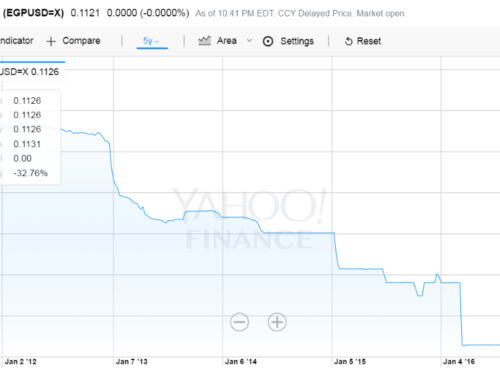a.k.a “the article where I refer to Shafiq and Morsi as “dumb and dumber” and “Bert and Ernie”.
Crossposted at Foreign Policy Transitions.[and big thanks to my editor Christian Caryl!]

The first is denial. And that’s what we’re experiencing in Egypt right now — for we’ve ended up with the worst possible outcome from the first round of our presidential elections. The winners are Ahmed Shafiq, a Mubarak loyalist whose spent most of his last post as prime minister during the 2011 revolution trying to smother the revolution and kill its children, and who now threatens violence and an “iron fist” at every opportunity; and Mohammed Morsi, a Muslim Brotherhood leader who wasn’t even his own party’s first choice, and whose lack of charisma and imagination threaten to bore us to death over the next four years while curtailing our social and personal freedoms in accordance to the Muslim Brotherhood’s conservative agenda.
Three days after the preliminary results were announced, the High Electoral Commission confirmed them with minor changes. The Commission claimed that it had used this interval to investigate fraud allegations and appeals, all of which it dismissed. Voters used the time to digest the news and find ways to deal with their disappointment.
Anger came next — mostly misplaced anger. At the “revolutionary” candidates who failed to agree on a single nominee. At Christians, who were accused of voting en masse for Ahmed Shafiq. Mostly, however, at the two candidates most voters felt did not represent them: As many Egyptians stayed away from the polls altogether, Shafiq and Morsi each obtained about 5 million votes, a tenth of all eligible voters (and a quarter of actual voters). To put it differently: 80 percent of Egypt’s electorate didn’t vote for either of these candidates.
The day the results were announced, thousands took to the street to express their disapproval. One of Shafiq’s campaign offices was set on fire, though the blaze was rapidly brought under control. On Friday, multiple protests across the country were held. While holding both candidates in contempt, the demonstrators clearly regarded Shafiq as their main target.
The bargaining phase is proving to be interesting and yet — as so often — futile. Fraud allegations? None could be proven. Could Shafiq could be disqualified from running under the terms of the Disenfranchisement Law, a legal text hastily passed by the parliament in April that would make him unfit for the electoral race due to his government service under Mubarak? The law, challenged as unconstitutional, is currently being examined by the Constitutional Court, which will issue its verdict on June 12. It’s unlikely that anything will come of this, but some Egyptians see a glimmer of hope in the proceedings.
Depression is the stage we seem to be at now.
It’s hard to imagine a worse pair of candidates. One of these men has no respect for our personal freedoms, the other no respect for our lives; neither represents us. We fear for the future of the country and hope to protect it from the very people and ideologies we are being asked to choose from.
And there are no clear alternatives. Feeble opposition coalition building, which resulted in a‘Testament” that lined up principles for Egypt’s political future, would seem interesting if it didn’t sound like a sore losers’ club with no leverage to make its suggestions (good as they may be) implemented or heard.
So will we ever reach the fifth stage of acceptance? That’s the phase where we’re supposed to be resigned to our fate, reconciled with the inevitable. But so far that doesn’t look very likely.
In fact, hours after the results were announced, a different kind of bargaining had already begun to take place, its terms slowly emerging. The “revolutionary voting bloc,” representing a sizable segment of the electorate that manifested itself during the first round, is trying to negotiate with the remaining candidates to secure certain guarantees, such as government independence from the president and the appointment of public figures from the revolution to high offices.
The reality, however, is that most activists — facing a choice between disaster or calamity, cholera or plague, dumb or dumber (just choose your metaphor) — have a candidate they hate most of all: Ahmed Shafiq, whose election would be the worst insult to their efforts and the souls of those who died. So ultimately, any negotiation with with both candidates is really a negotiation with Morsi, in the hope that he will agree to their demands because cutting a deal with Shafiq would be morally inconceivable.
A document circulated by the “We are all Khaled Said” Facebook page (effectively the online home of the 2011 revolution) lists a number of conditions required of the new president, including proper national representation from across the political and religious spectrum in the constitution drafting committee and in a newly formed government; the appointment of two independents as vice presidents; and a raft of suggested legislation, including the suspension of military trials for civilians, the establishment of a minimum and maximum wage, and so on. The petition has gathered nearly 150,000 online signatures in four days.
While the document’s preamble remains general and cites neither candidate, these demands are clearly directed at Mohammed Morsi, who has actually said in a television interview that he would be willing to sign it (though he has not).
The latest attempt is a new (and long overdue) agreement between three former presidential candidates with support within the revolutionary camp — Hamdeen Sabahi, Khaled Ali, and Abdel Moneim Aboul Fotouh — to form a civilian “presidential council” that would rule the country. The details will be announced next Friday.
While I truly wish the presidential council to be a viable option, it is unlikely to be, especially if it attempts to sidestep the millions who voted for the Bert and Ernie of the runoff. So far, all arguments presented for the presidential council have failed to address why it was alright to sidestep the results of the first round of elections. Simply put, if Mohamed Morsi is not on board with the presidential council — and he is unlikely to be — the idea is doomed.
A number of revolutionaries are trying to dodge these dilemmas by casting blank or voided ballots in the second round of the elections. Tempting as this option may sound (and I have struggled long with it myself), it amounts to ceding the choice of our next president to others — a solution acceptable only if there is reason to assume that the voting process is flawless and that the median voter is capable of making choices impartially. But the median voter can be manipulated. This is not an inherently Egyptian problem, but a common global and historical one. One candidate’s camp makes promises of “security” and “stability” (code for the status quo) to those fearing change, while the other deploys God-coated slogans and micro-bribes in the form of food handouts. We’ve already seen that voters here in Egypt are extremely susceptible to these sorts of blandishments. Sitting on the sidelines is therefore not only an abdication of our right to choose, but a gift to the worst candidate.
I plan to vote — for the candidate who is a little less bad.
Most importantly, I strongly believe this does not take away my right to reject the legitimacy of the entire electoral process, which is taking place under illegal military rule, which is supposed to fill a position whose job description has yet to be defined by a constitution, and which allows criminals like Shafiq to run while disqualifying other candidates. I think of this approach as yet another exercise in damage control.
And the second after I drop my ballot, I will rejoin the ranks of the active opposition, regardless of which candidate wins.



